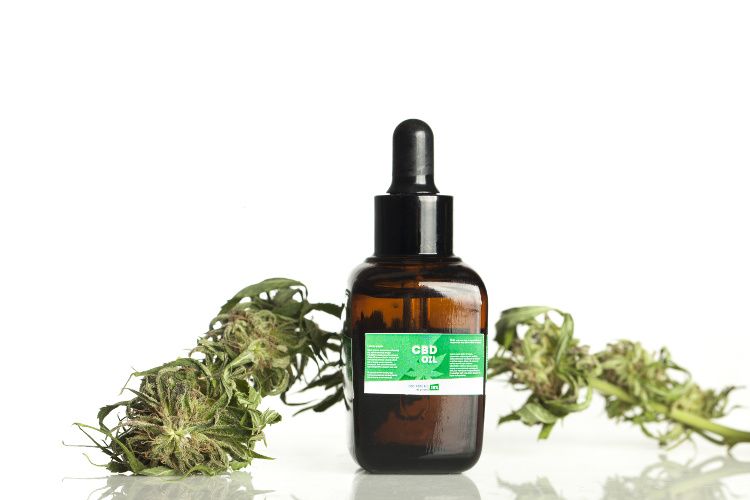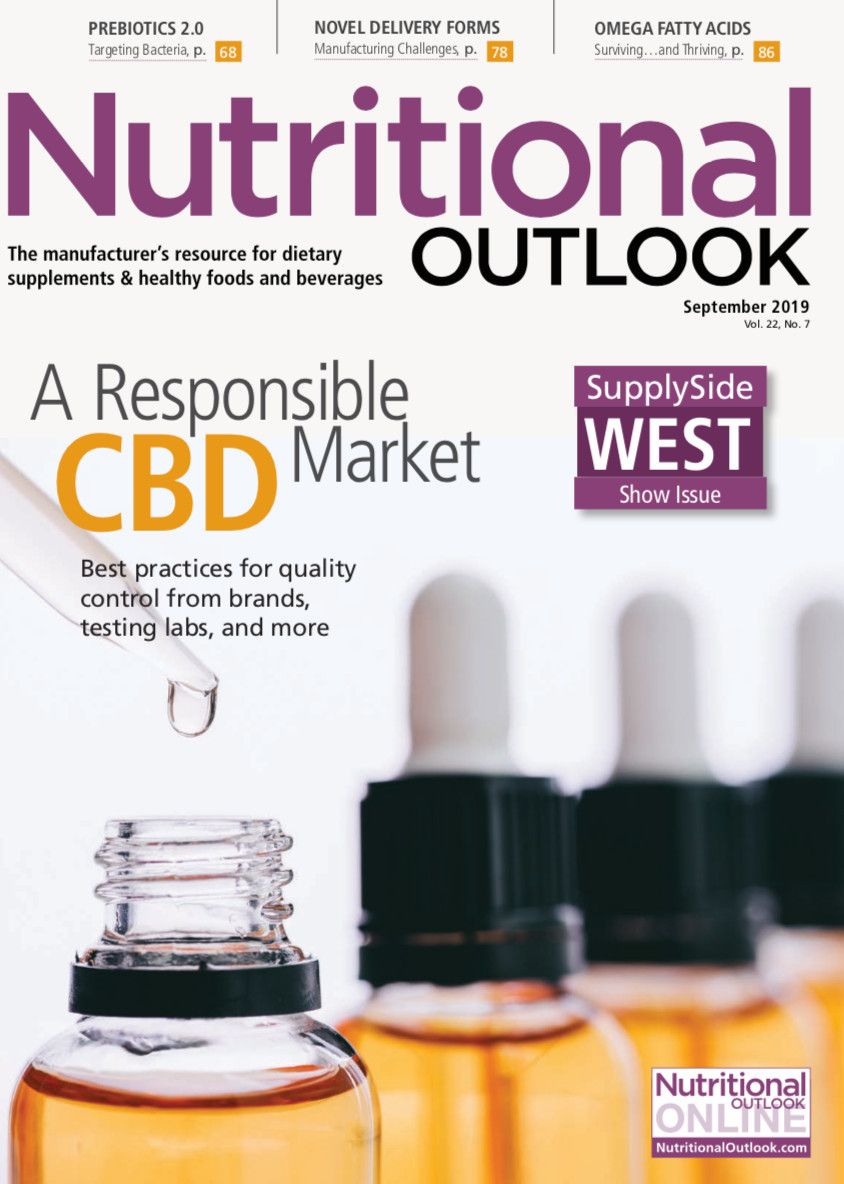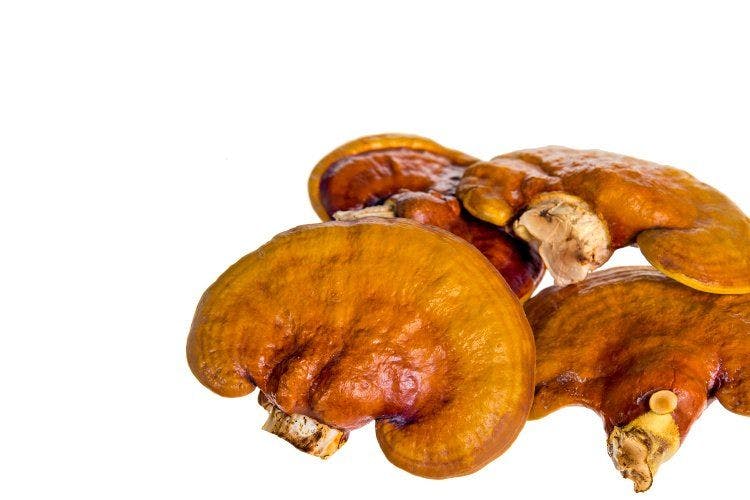Which GMPs for the cannabis industry? Pharmaceutical, food, or dietary supplement?
Where do hemp and cannabinoid companies fit in the manufacturing standards regimen? This has become the question in the absence of clear FDA guidance and regulations for manufacturing.
Photo © AdobeStock.com/Elroi

• This article is the third in a three-part series written by the authors for Nutritional Outlook magazine.
In this series on cannabinoids and full-spectrum hemp, we have touched on the regulatory challenges in this ever-changing landscape [link to article] as well as the need to set quality controls or standards for the product being produced. [link to article] As with all molecular entities-whether chemical, botanical, or food-derived-FDA has one main focus: to ensure the safety, identity, purity and quality, and intended use of the ingredient is suitable for human and animal use. The use, dependent on the label claim and other regulatory considerations, can be categorized as a cosmetic, drug, food ingredient, or dietary supplement. Following a standard for manufacturing is the end result of implementing regulatory and quality considerations.
So, where do hemp and cannabinoid products fit in the manufacturing standards regimen? This has become the question in the absence of clear FDA guidance and regulations for manufacturing.
In 1994, the law governing dietary supplements, the Dietary Supplement Health and Education Act (DSHEA) was passed, giving FDA authority to establish federal guidelines for current good manufacturing practices (cGMPs) in order to guide industry in the manufacturing of quality finished products for human consumption. Today, the Cannabis industry appears to be following the dietary supplement industry in a similar fashion, with conversations now happening between industry and FDA regarding the agency’s regulatory views.
The 2018 Farm Bill removed hemp-derived products from Drug Enforcement Administration’s (DEA) Schedule 1 of the Controlled Substances Act. The removal of hemp (< 0.3% THC) from the definition of “marihuana” redefined hemp as an agricultural product and has led to an explosion in the industry of hemp-derived cannabinoid (CBD) extracts. The Farm Bill does not, however, exempt “hemp” from the Food, Drug, and Cosmetic Act (FD&C Act), which legally requires compliance with manufacturing standards in order to produce a quality and safe product.
While the regulatory debate continues around hemp and CBD, what can the industry do to prepare for the likelihood of cGMP requirements if they are one day mandated for this class of ingredient? Will the GMP requirements mimic those for pharmaceuticals (under 21 CFR 210/211)1, food (21 CFR 117)2, food under the Food Safety Modernization Act (FSMA), or dietary supplements (21 CFR 111)3? While there are several variances between the cGMP regulations for foods, dietary supplements, and pharmaceuticals, these regulations have long been amended and enforced in order to provide safe and efficacious products for consumption and treatment of diseases in the human condition.
Regardless of the product category (drug, food, or dietary supplement), cGMP regulations are applicable to any facility that manufactures, processes, packs, or holds a product for sale. The goal of GMPs is to provide the following compliance standards:
- Identity testing of the raw material
- Establishing a quality assurance/quality control unit in house
- Mandatory expiration dating on the finished product
- Control records for master and batch productions
- Establishment of process and production controls to meet product specifications.
- Establishment of written standard operating procedures (SOPs) and documentation
- Expanded procedures for storage and distribution of the raw material and final product
- Procedures to handle consumer complaints and product returns
- Requirement for reliable and reproducible data, test methods, and results to specifications
- Safety data of finished product and its beginning and intermediate products
Whether hemp producers should follow the cGMPs for a pharmaceuticals, foods, or dietary supplements will be determined by:
- the label claim
- whether the producer is a grower and/or processor making a raw material to be used as an ingredient for the pharmaceutical or dietary/food market
- whether the producer is manufacturing a finished dietary supplement product
Let’s take a look at each possible option, depending on the category, with regard to non-psychoactive hemp ingredients (not more than 0.3% THC by dry weight) with the intent to be used as a food or dietary supplement ingredient. What cGMP regulation may then apply?
Hemp Growers Providing Dry, Unprocessed Product to the Market
There are a few considerations here in this category. First, the U.S. Department of Agriculture (USDA) becomes the prime regulatory authority both on federal and state levels, with the requirement under the interim final rule published in 7 CFR 990 to establish a domestic hemp production program. Growers can set quality standards for their product by considering the use of organic certification standards for their crop and keeping good production records, as well as strain/species identification records. Furthermore, developing an analytical profile of the harvested dried crop that identifies the THC level, cannabinoids, terpenes, and phenolic compound levels will support the quality and identity of the processed CBD products downstream. Growers can establish a quality system and good agricultural practices (which can be related to cGMPs).
Hemp as an Ingredient-Processors/Product Manufacturers
This category references the production or manufacturing of extracts from the dried harvested hemp. If processors are claiming to produce a food or dietary supplement ingredient, compliance with 21 CFR 117 cGMPs comes into play. It is important to note that proper procedures for the identification of the raw material to be processed (i.e., dry harvested crop product) is critical. This links back to the grower and their quality standards and good agricultural practices.
If one is producing an ingredient for use in a future finished product, the establishment of identity, chemical profile, specifications, and reproducible processes and procedures for manufacturing to establish product specifications is a must. A spin-off to compliance with cGMPs is the establishment of an overall robust quality management system (QMS), another attribute that is expected in the production of a quality ingredient.
Part 117 establishes cGMPs, as well as the requirements for food safety plans, hazard analyses, and risk-based preventive controls, which concern preparing and maintaining records for such areas as:
- Production
- Complaints
- Corrective actions
- Verification and validation of processes and procedures for manufacturing
- Identification of raw materials and finished products
- Specifications
- Receiving and distribution
- Other required GMP records
Hemp as a Dietary Supplement
For companies manufacturing or contracting the manufacture of a dietary supplement, 21 CFR 111, “Current Good Manufacturing Practice in Manufacturing, Packaging, Labeling, or Holding Operations for Dietary Supplements,” comes into play. Compliance with these regulations also looks back along the supply chain to the quality of the product provided by both the hemp grower and the ingredient manufacturer. These cGMPs cover such areas as quality systems, personnel and training, conditions of facility and grounds, established and verified production processes and procedures, complaints, corrective actions, recordkeeping, receiving and distribution procedures, and specifications for ingredients and finished products.
Regardless of where in the production/supply chain a company sits, establishing a robust QMS and demonstrating compliance to a set of GMPs or Good Agricultural Practices will situate a company well for preparation of any future FDA regulatory guidance for cannabinoid products.
About the Authors:
As a team of experts, our companies collaborate together and are currently working with several CBD clients from seed to finished manufactured product.
Katrina Emmel, PhD, is the founder and president of analytical laboratory KemmelCal Inc. (www.kemmelcal.com). She is experienced in analytical method selection, data review, and establishing product specifications for ingredients used in foods and dietary supplements. Dr. Emmel has over seven years of experience in drafting, reviewing, and serving as an expert panelist for GRAS evaluations.
Evelyn Cadman is the owner and principal consultant for FDA Compliance Simplified (www.FDASimplified.com), offering technology evaluation, product development, and regulatory affairs services to the food, cosmetic, nutritional supplement, and biotech industries. She has worked in regulatory affairs and product development for FDA-regulated products since 1997.
Cheryl Dicks is managing partner of Live Well RACE and CBD Compliance Simplified (www.CBDcompliancesimplified.com). With over 20 years’ experience in the dietary supplement and pharmaceutical arenas, the company offers its clients support in product development, manufacturing, cGMP compliance, clinical trial development, quality management system development, and regulatory agency support and filings.
References:
- FDA website. Current Good Manufacturing Practice (CGMP) Regulations. Accessed at: https://www.fda.gov/drugs/pharmaceutical-quality-resources/current-good-manufacturing-practice-cgmp-regulations
- FDA. Code of Federal Regulations Title 21 Part 117. Accessed at: https://www.accessdata.fda.gov/scripts/cdrh/cfdocs/cfcfr/CFRSearch.cfm?CFRPart=117
- FDA. Code of Federal Regulations Title 21 Part 111. Accessed at: https://www.accessdata.fda.gov/scripts/cdrh/cfdocs/cfcfr/CFRSearch.cfm?CFRPart=111&showFR=1

Prinova acquires Aplinova to further increase its footprint in Latin America
April 7th 2025Prinova has recently announced the acquisition of Brazilian ingredients distributor Aplinova, which is a provider of specialty ingredients for a range of market segments that include food, beverage, supplements, and personal care.

.png&w=3840&q=75)

.png&w=3840&q=75)



.png&w=3840&q=75)



.png&w=3840&q=75)
























